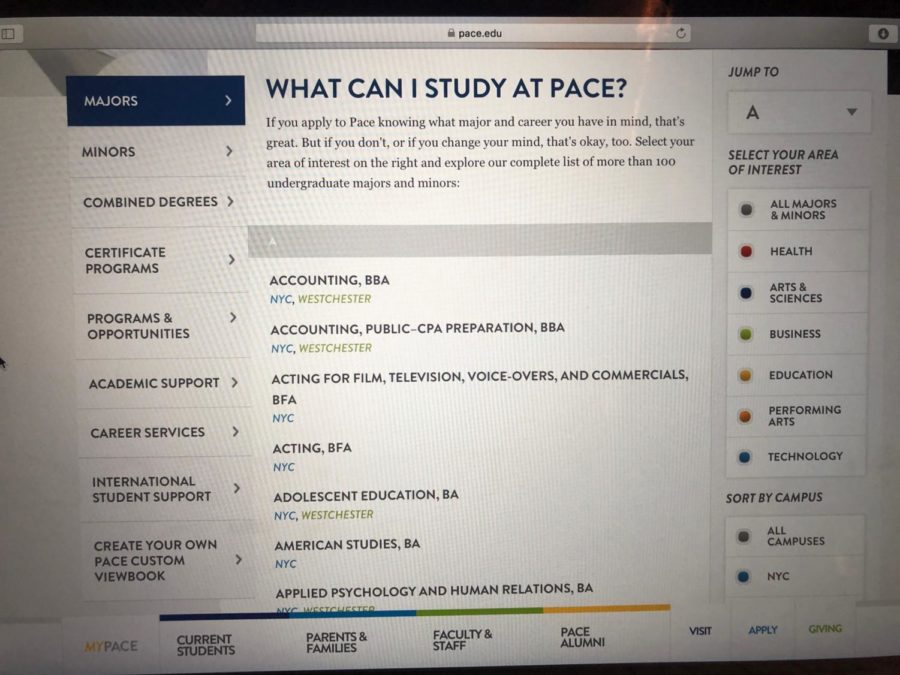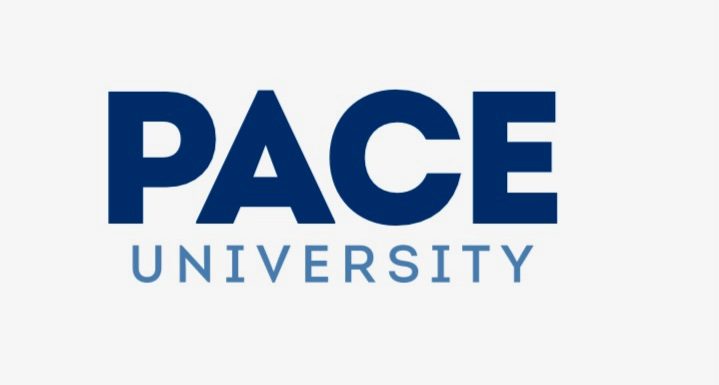Double Majoring and Minoring: Is the Extra Effort Worth it?
Pace University has a wide variety of major and minor programs that students can choose from or combine together.
February 16, 2019
A typical question a college student hears when they interact with anyone is, “What’s your major?” More often than not, after revealing one’s major, remarks follows of how difficult that field is and the unlikelihood of finding a high-paying position in it.
These comments have resulted in a culture of students constantly feeling like they aren’t doing enough to make a successful living for themselves. It has created second-guessing on whether the degree one is pursuing is actually worth it. The pressure is on for students to complete double majors, or having multiple minors as a way to have multiple “backup” plans in case the first one does not work out.
A study done at Vanderbilt University revealed that 40 percent of college students are completing double majors. This number has been significantly increasing, particularly in the past decade. For an example, Virginia Tech reported that there has been an 84 percent rise in double majors at their university in the past ten years. This phenomenon has occurred throughout the country, particularly since the market crashed in 2007.
However, the question remains as to whether the extra effort placed into these double majors and minors is worth it. Many college graduates end up not even landing a job in the field they receive their bachelor’s degree in. The college degree instead represents one’s work ethic and the perseverance one has in order to finish what they have started, as well as a well-rounded education and development of critical thinking skills. In fact, most graduates determine that they do not even want to work in the field they received their degree in. This typically occurs because 18-year-old’s are asked to make big decisions, but as they mature into adulthood, they develop new passions and interests which intrigue and fascinate them. Thus, many individuals want to pursue those new passions and interests.
Some students add on minors and/or additional majors to pursue other interests or to combine the two degrees together in a way that would both be beneficial for a specific career or in a certain field. However, others are constantly feeling the pressure to add onto the load of courses they are already taking, just to increase the number of degrees or minors on a resume and cover letter.
Although these degrees can prove to be a benefit, the negatives often outweigh the positives. The extra workload typically can cause an increase in stress, as well as an increase in money and time spent. Also, many students would have to take summer classes or spend additional semesters in order to complete the extra workload and ultimately their degree. The extra classes also reduce the amount of time students can devote to each individual class, which may have a negative effect on individual course grades and overall GPA.
Furthermore, employers often prefer that students focus on one subject, or at least similar subjects, compared to spreading themselves thin with degrees in completely different areas or schools within the university or college. Therefore, it is important for students to research their future opportunities and academically decide what is in their best interest.











